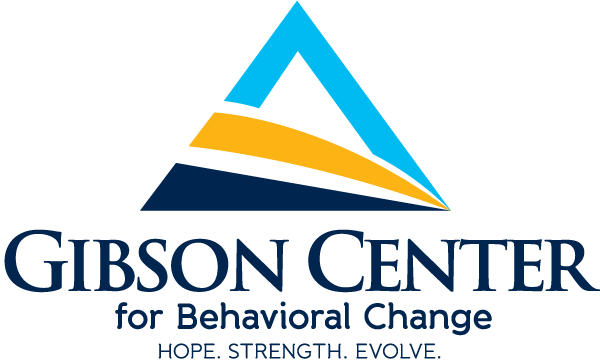Every year, communities across the nation come together for National Drug and Alcohol Facts Week® (NDAFW) to shatter myths and spread truth about substance use and addiction. From March 17-23, 2025, teens, parents, educators, and advocates will engage in vital conversations about the impact of drugs and alcohol on our lives. At its heart, NDAFW is about empowering individuals to move forward with knowledge—and with hope. Addiction doesn’t discriminate, but neither does recovery. That’s why this week is about turning understanding into action, and at the Gibson Center for Behavioral Change, we’re here to help every step of the way.
Understanding the Scope of Addiction – The Facts
Addiction is a crisis that affects millions, but breaking it down into numbers reveals just how widespread substance use really is:
- According to the 2023 National Survey on Drug Use and Health (NSDUH), 16.9 million young adults (ages 18-25)—nearly half of this age group—reported drinking alcohol in the last month.*
- Of these, 8.3 million were men (48.4%) and 8.6 million were women (50.8%).
- Each year, excessive alcohol consumption leads to more than 178,000 deaths in the U.S., making it one of the leading preventable causes of death.*
- Opioid misuse, another major concern, claimed the lives of over 106,000 individuals in 2021—a number that continues to grow.*
These statistics are more than just numbers—they reflect real people, families, and communities affected by substance use and its consequences. But here’s the good news: understanding the science and realities of addiction is the first step toward creating a healthier path forward.
What Makes NDAFW Vital
Why dedicate an entire week to fact-checking myths about drugs and alcohol? Because misinformation is dangerous, especially when it comes to decisions that shape our health and future. Some common myths include:
- “Alcohol is safer than other substances.”
- “Prescription medications can’t be harmful if prescribed by a doctor.”
- “Occasional drug use can’t lead to addiction.”
NDAFW combats these misconceptions with science-based facts, ensuring teens and adults alike have the tools they need to make informed choices. From interactive discussions to community programs, events held during this week challenge stigma and pave the way for open, honest dialogue about substance misuse.
Overcoming Addiction – Support is Available
Facing addiction or substance misuse can feel like a lonely road—but you’re not alone. The Gibson Center for Behavioral Change is here to guide you with compassion, expertise, and unwavering support.
How We Can Help
At the Gibson Center, we offer services designed to meet you wherever you are in your recovery process.
- Detoxification: 24/7 support in a safe, medically supervised environment to help you overcome the physical challenges of withdrawal.
- Residential Treatment: A structured, supportive space to focus deeply on recovery and healing.
- Customized Outpatient Services: Balancing treatment with daily life while navigating specific challenges and maintaining accountability.
- Medication-Assisted Treatment (MAT) for opioid or alcohol addiction, combining medications with behavioral therapy for comprehensive care.
We also provide education and healing for families, friends, and colleagues coping with a loved one’s struggles. Recovery doesn’t happen in isolation—it happens through connection and community.
Breaking the Silence – How You Can Get Involved
Regardless of your role—as a parent, teen, educator, or community leader—you can take steps to support awareness during NDAFW. Here are some actionable ways to make a difference:
For Teens:
- Start Conversations: Talk openly with your friends about the risks of substance use. Share facts, not fear.
- Participate in Events: Many schools and communities host workshops, panel discussions, or online challenges.
- Ask Questions: If you’re unsure about something you’ve heard, get curious! NDAFW is all about learning.
For Parents and Educators:
- Lead by Example: Model healthy behaviors and challenge harmful stereotypes about drugs and alcohol.
- Provide Resources: Encourage open communication and share articles, videos, and services with those in your care.
- Build Relationships: Strong support systems reduce the likelihood of youth turning to substances.
For Those in Recovery or Facing Addiction:
- Seek Help: There’s no shame in reaching out for support. You’re not alone, and recovery is possible.
- Attend Support Groups: Strengthen your community by connecting with others who understand your experience.
- Share Your Story: Inspire hope by showing others that change is achievable.
This National Drug and Alcohol Facts Week®, Take the Next Step
Addiction thrives off of silence, shame, and misunderstanding. Facts, on the other hand, create pathways to healing, understanding, and prevention. At the Gibson Center for Behavioral Change, we believe every individual has the ability to write a new chapter of their story—one defined by resilience, connection, and hope. If you or someone you love is struggling with addiction, don’t wait to reach out for help. This National Drug and Alcohol Facts Week®, take the opportunity to act—whether that means getting educated, supporting a friend, or taking that first brave step toward recovery. We’re here to walk alongside you.


